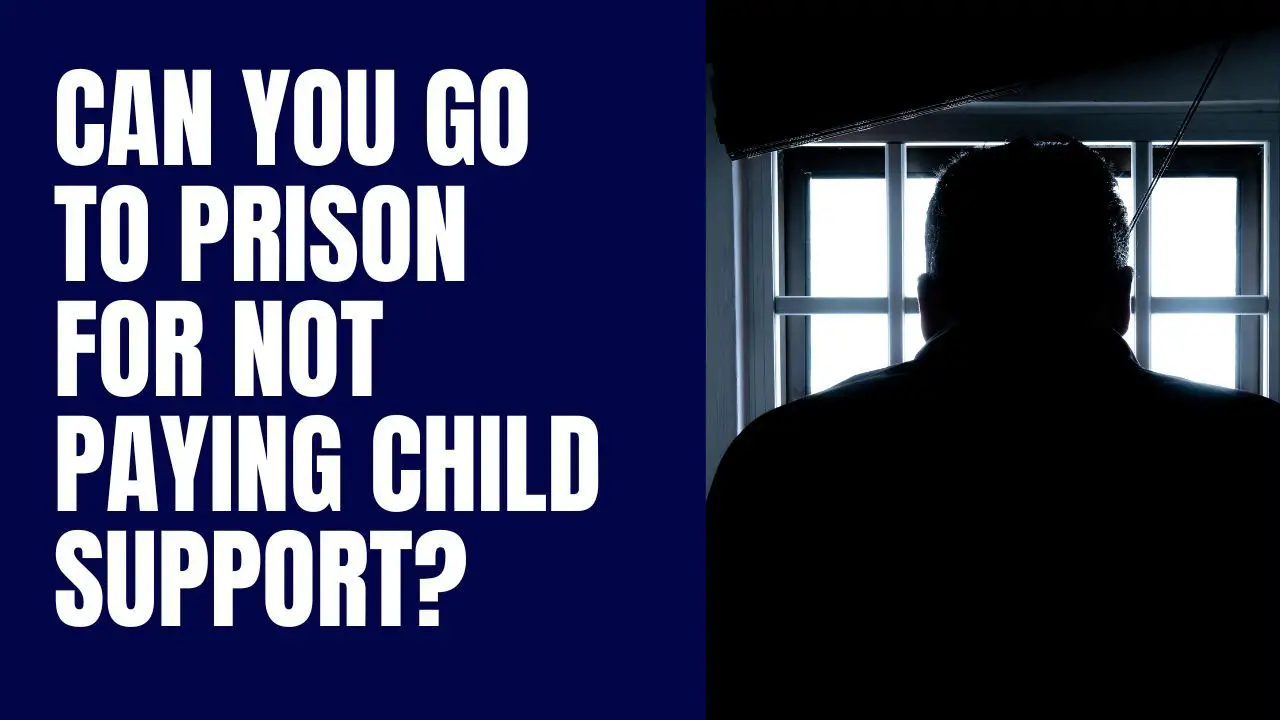Can You Go To Prison For Not Paying Child Support?
In this article we have discussed Can You Go To Prison For Not Paying Child Support? We also discussed federal rules on child support and other penalties.

Child support is an essential source of income for hundreds of children and their custodial parents who receive the payments. In 2003, the Office of Management and Budget (OMB) acknowledged child support as one of the most effective programs in the federal government, and it is widely responsible for keeping children and their families out of poverty. In 2018, 22 million children under 21 were found eligible to receive child support, according to a survey by Census Bureau.
If you’ve been ordered by a court to pay child support, you must make those payments on time and in full. Excuses are not often tolerated by family court judges. After all, it is the child’s right to receive financial support from both of their parents.
Laws For Non-Custodial Parents
State legislatures have implemented laws focused on noncustodial parents who either do not or cannot pay child support. These policies overlap with those in criminal justice. There are two primary ways that non-custodial parents with child support orders can intersect with the criminal justice system:
- A noncustodial parent is not bound to comply with a child support obligation, and noncompliance leads to incarceration (short-term, primarily in local jails) as a result of either a civil denigration or criminal non-support action taken by the state.
- A noncustodial parent is imprisoned for a criminal offense and has a current or delinquent child support obligation. In this case, the person’s incarceration is not due to failure to pay child support orders, and incarceration is often for longer periods in a state or federal prison.
Federal Rule On Child Support
The federal Office of Child Support Enforcement (OCSE) established a final rule updating child support enforcement policies in December 2016. This policy was further amended with technical corrections in an updated final version in 2020.
These rules increased the effectiveness of the child support system for all families and provided more variability in state child support programs. Keeping up with the ever-changing world of technology, these rules also help to remove barriers, such as requiring paperwork or written signatures. The provisions are optional for the most part and do not require state legislation in most states; however, they do provide an opportunity for state legislators to clarify their child support enforcement laws.
The 2016 rule addresses the imprisoned noncustodial parents, incarceration for inability to pay child support, and modification procedures for incarcerated noncustodial parents in the following ways.
- Imprisonment for Failure to Pay Child Support: this rule requires states to implement due process safeguards from the 2011 Supreme Court case Turner v. Rogers. Turner v. Rogers served to p[rovide guidance on the factors to be considered when deciding which cases were to be referred to the court for civil contempt, including determining the noncustodial parent’s ability to pay.
- Imprisoned with a Child Support Order: this rule ensures the right of all parents to seek a review of their order when their state of affairs changes.
While these provisions apply to all parties involved, the rule specifically addresses the incarcerated noncustodial parents and their ability to have a child support order reviewed and potentially modified during their time in prison.
The 2016 rule prohibits states from treating imprisonment as voluntary unemployment intending for modifications in a child support order.
Both the 2016 final rule and revisions to the 2020 final rule significantly increased the program’s efficiency and provided greater flexibility for the states.
Incarceration For Failure To Pay Child Support
When parents cannot pay child support, they may face legal ramifications, including civil contempt of court, criminal charges, and incarceration.
Criminal Nonsupport
All 50 states of America, the District of Columbia, and American Samoa have processes for criminal prosecution for failure to pay child support. States consider failure to pay child support either a misdemeanor or felony, depending on how much money is owed. Some states also consider whether the defendant knowingly and purposely chose not to pay the due amount. Fines and prison sentences vary based on state.
Civil Contempt
Civil contempt proceedings are not intended to punish the defendant but to encourage compliance with court orders. In the case of child support, civil contempt is used to incentivize the defendant (also called obligor) to comply with the court order.
Based on Turner v. Rogers, federal law requires that civil contempt can only be applied when the noncustodial parent can pay and chooses not to. State policies and practices are variable in how the state child support agency implements this limitation.
With noncustodial parents unable to pay their child support obligation, diversion or employment programs could see a significant improvement in their ability to pay. The 2016 and 2020 final rules formalize the due process requirements from Turner v. Rogers, which provides guidance on the factors to be considered when determining which cases should be referred to the court for civil contempt.
Incarcerated With Child Support Orders
The second category of incarcerated noncustodial parents is those incarcerated for other criminal offenses, not including child support, and who have current and/or delinquent child support orders.
As of 2018, around 2.2 million people were incarcerated throughout the United States. According to the Bureau of Justice Statistics (BJS), 47% of state prisoners and 58% of federal prisoners have at least one child under 18. In the U.S., over 5 million (7%) children have a parent who is/was incarcerated. At least 20% of those, or about 440,000 parents in prisons and jails, have a child support obligation.
Other Penalties
If one is more than 30 days late on a child support payment, their debt may be reported to a credit agency. The credit agency can contact them to collect those past-due payments.
They could also:
- Be prevented from renewing their driver’s license
- Have a lien placed on their car or other property
- Have their support payments deducted from any money the state owes them or their lottery winnings
- Have their tax refund withheld
If all these measures have been exhausted and they’ve still not paid the child support, the Court can find them in contempt of court. They will only be found in contempt if the court determines that They were able to pay the money but refused to do so. Suppose their child support case is being enforced by the Department of Revenue (DOR).
In that case, DOR will take several enforcement measures before holding them in contempt of court, which can carry penalties ranging from paying a purge amount and/or incarceration. Judges have broad discretion in assigning penalties for anyone in contempt of court depending upon the money owed. A person could face a specific jail sentence of up to five months and 29 days.
Duration of Incarceration
If someone fails to pay their child support, there are two different degrees of severity that this falls under. They can either be charged with a felony or a misdemeanor.
If they are found guilty of the misdemeanor charge, this can result in a fine of up to $2500 and six months in jail. That period is generally served at a county workhouse or in county jail.
However, if they are charged with a felony, they can get as many as 18 months in jail. In this case, they will likely be sent to one of the state facilities, where they will be forced to serve the majority of their time before they are released back into society.
Read more related articles:
- Ferguson Unit: Visiting Information, History of This Facility, Inmates Phone, Mail, And FAQ About This Prison
- Active Inmates List In Hancock County Jail & Everything You Need To Know About This Facility
- Pickaway County Active Inmates: How to search for Active Inmates of Pickaway County Prison
- Trumbull County Jail: Brief Overview Visiting Hours, Inmate Phones, And Sherif's Location
- Worst Prisons In The State Of West Virginia
- Top 7 Worst Federal Prisons In The United States
- Craighead County Detention Center: Sherif's Office and How to Contact Inmates?
- Byrd Unit Texas: Everything You Need To Know About This Facility
